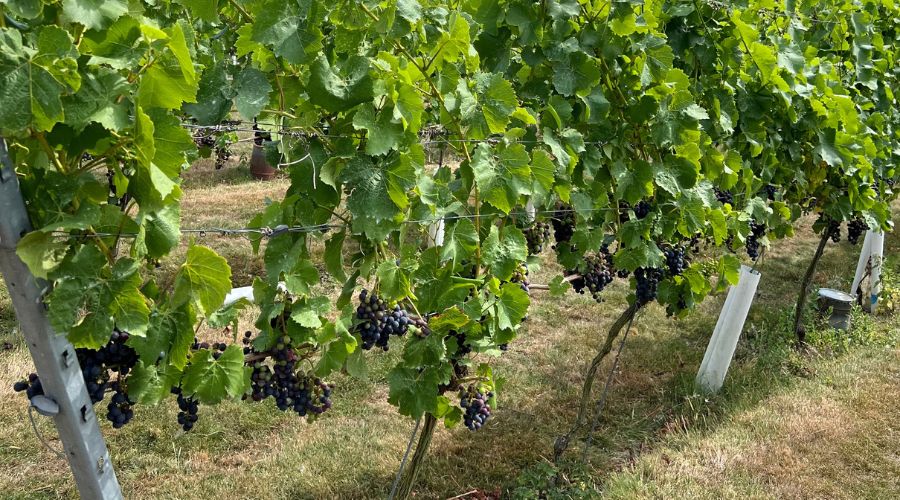Ceres Rural launches new viticulture service
13th September 2025
Ceres Rural has announced the launch of an independent viticulture service, tailored to the growing needs of English vineyards.

This new service line focuses on providing practical, independent agronomy advice aimed at optimising vine health, increasing yields, and enhancing wine quality, the rural consultancy firm said.
Delivered by trained and qualified consultants, it is further supported by in-depth knowledge of grants, funding opportunities and agri-environment schemes to aid with vineyard establishment and expansion.
The business believes that its integrated approach – combining technical agronomy with strategic business support – makes the Ceres Rural viticulture offer uniquely placed to serve a rapidly evolving sector.
Ceres Rural consultant Beth Speakman said: “We can be involved from the establishment of vines to providing agronomy advice through each growing season.
“That includes soil health, nutrition, pest and disease management, along with the development of more sustainable production practices.”
‘Growing demand for expert advice’
Ceres Research, the consultancy’s specialist R&D arm, will also play a key role in supporting agronomic decision-making through exploring grape growing in temperate climates.
Work focusing on understanding the challenges and opportunities that the UK’s changing climate presents for vineyards will help growers future-proof their operations and adopt innovative new technologies.
This new service comes at a time of rapid growth for the UK wine industry. The number of vineyards in England has now surpassed 1,000, with sales of English wine up 10% in the past year.
Sparkling wine accounts for 69% of bottles produced, with 99 grape varieties currently grown – the majority in the south-east of the country.
As Ceres Rural consultant Louise Penn explained, the timing is ideal for bringing a complete, independent vineyard support service to market.
“There is growing demand for expert advice that spans the entire vineyard lifecycle – from grape growing to grant funding, sustainability, and business planning.
“Our agronomy service needs to work hand in hand with climate change pressures, cash flow management, and carbon footprint reduction – seamlessly integrated for today’s vineyard businesses,” says Louise.
“We also carry out carbon audits and advise on emissions reduction strategies, including regenerative practices such as cover cropping between vines and improving overall vine resilience,” she continued.
The expert also noted that a wide range of agri-environment and capital grant schemes are now relevant to vineyards, offering funding opportunities for new enterprises and diversification projects.
Read more vine news.
